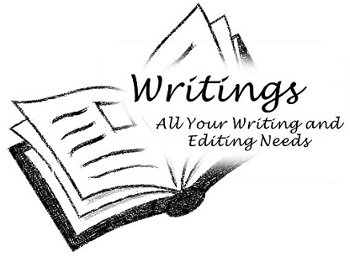To me, ‘good writing’ is something that interests me – either because of the style of writing, and/or because of what is being said. Good writing translates as easy reading that beckons you to continue reading paragraph after paragraph and page after page. For this to happen the reading needs to be fluent. When it is we become absorbed and think only about what is being communicated through the words in front of us.
I like writing that hides itself like a good chef (out the back in the kitchen): it serves its purpose well, but inconspicuously. By this I mean I like writing that does not draw attention to itself but allows us to become absorbed in its content.
THE ROLE OF COMMAS IN WRITING
- Commas are very necessary.
- Commas can get in the way.
- Commas can really, really get in the way like a nagging dog wanting a pat while you’re in the middle of a good book.
- Commas can confuse.
- Commas can change or create the intended meaning.
- Commas really are very necessary.
So imagine sitting down by yourself in a warm room, snuggled onto the couch under a lamp. Soft music is playing but you don’t notice it anymore – you’ve just read the back cover of a book you picked up at the library and it looks good. So you turn the first few pages, skipping the Introduction, and the beginning of the first chapter now stares back at you as you start reading.
What’s this, you think, and you read over it again. Half way down the page again you stop – whew, that was a long sentence – and you decide to read over that again also. And then – what on Earth does that mean? – again you read over a line for a second time before crying out loud, ‘Why on Earth did he put that comma there? There’s just too many commas and they just don’t work.’
In my writing and editing I have come to conclude that we have many reasons for placing commas where we do. Often it is because we think we are using them as they are ‘supposed to’ be used.
My point of view is that the best rule to follow is that commas are to be used by a writer to tell the reader when to pause. (They are best viewed as a tool, not a rule.) If we are good at telling a story to a group of friends, then this is what we do when we speak. We stop, we pause, we wait for a response … When we are instead writing, then if it’s not a full stop that we use to indicate a pause for the reader, then it’s a comma.
This is how we sustain interest. It is the means we use to help our audience to take in what we say, to clarify our meaning, and to create emphasis and interest: this is how a comma is best used.
Forget the ‘proper’ way to place a comma – but place them to suit your purpose. And when in doubt, read the sentence out loud, pausing where the commas are. Did you pause where you want your reader to pause?
Remember – see commas as a tool, not a rule. Only place them where you want your reader to pause, and always in the interests of good communication.


4 Comments